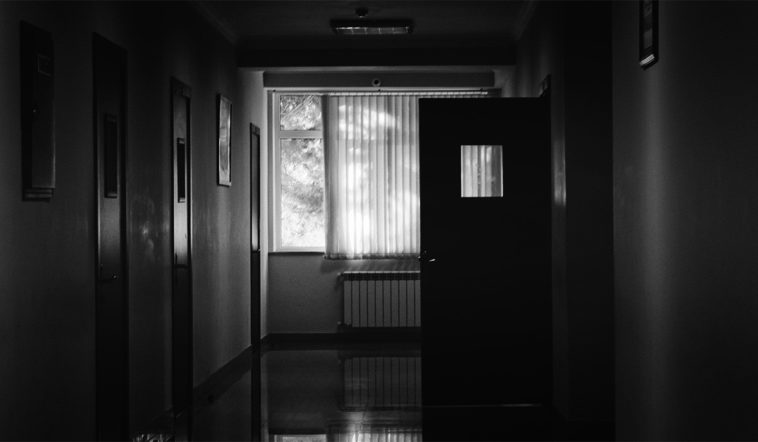h2>Dating : Oranges and Alstroemeria
FICTION
A short story by Erin Catherine Batog
I was sixteen years old when my parents checked me into Southwood Hospital. I kept my cool in there. The rooms were nicer than in Leonard Morse. The walls were less dirty and bordered with a floral print, alstroemeria. My grandmother’s favorite flower. I stared at the flowers that encompassed the room and pretended that I was lying on a grassy hill, surrounded by hundreds of alstroemeria. I pictured many colors, but pink flamingo was my favorite. For my junior prom a year later, my date would have to custom order my bouquet of pink flamingo alstroemeria and baby’s breath. On that grassy hill, I inhaled their sweet perfume and felt their soft petals glide graciously through my boney fingers. I used all my body’s energy to rip out the IV in the middle of the night, so I was usually spent for the rest of the day. I hardly ever went to the lounge to play games or watch TV. It was too much to walk down the hall, but I could always run through my garden of alstroemeria.
The second week of the eight-week program, I got a roommate. She smelled like oranges. She was 70 lbs. I was happy she was 70 lbs. It meant I was thinner. She was not happy. She ripped her IV out, too. We didn’t talk much. She commented once on the alstroemeria and I didn’t respond. I was mad at her. Those were my flowers. I didn’t want someone like her to have them. Wayward and coarse. Undeserving.
I watched her while she slept. Barely breathing. Her chest struggling to rise. She slept with her mouth closed. The whole night she would breathe through her nose. I slept with my mouth open. I tried and tried to keep my mouth shut, but I couldn’t. She could breathe all day and all night through her nose, and I couldn’t. I didn’t like her much. She amused me sometimes, when she would tell the therapists where to shove it. Outside we might have been friends, but we were in here and we were not friends.
Her name was Tara, but I don’t think I ever said it out loud. She had brown eyes. Every morning, when the sun shone through the window of our room, her eyes would go wide and kind of sparkle. I thought people’s pupils were supposed to shrink in the light, but hers would dilate. She loved the sun. Loved. I don’t know why, but it was very important to her. She called the nurse in one morning and started freaking out because the sun wasn’t out. It was raining, and she screamed at the nurses that she would sue the hospital if they didn’t bring the sun back. I was thinking she had bigger problems than anorexia, but I wasn’t a “professional,” so what did I know?
I noticed other things about her. She never made her bed. As part of our program, we were supposed to make our beds and keep our rooms clean, but she never did. Her side was always a mess. Her books and magazines were always on the floor beside her bed, but they weren’t in piles; they were scattered around in no particular order. I always made my bed and my magazines were in piles and sorted by name, date, and who was thinner on the cover. She was always doing her nails. Cutting and filing and painting them. Every morning, before she even showered, she would remove the nail polish she had put on the night before. She would file the raw, worn skin where the tips of her nails would’ve been had she not cut them so often. She put on a different color before our liquid breakfast, which consisted of a tan protein drink that tasted like the way chalk smells. After “lunch,” she would repeat the process. The same after “dinner.” She was odd. I never did my nails. Even for my prom a year later, I only put on clear nail polish at the insistence of my mother. I have bitten my nails since I was a kid. One night, she caught me staring at her while she filed, and glared at me. I wondered, then, if she ever noticed that I bit my nails. I wondered if she ever noticed anything about me. I thought about asking her, but I didn’t.
My third week there, I started to talk. I figured out that was what they wanted. I became a professional talker. In group, at individual, all I did was talk and talk. They wanted to hear you say you have a problem. In one group we were talking about what kind of people we were. I told them I was like my father. A militant mind. I was the kind of person who got things done. Emotions were second to what needed to be done. I told them the story of the time my friend got hit by a car when I was eleven years old. She was lying in the street, her arm obviously broken. Instead of crying and screaming like the two other friends who were there, I quickly memorized the license plate number of the red Toyota as it sped away. They caught the guy and everyone thought I was a hero, but I didn’t think much of it. I just did what needed to be done, because that’s the kind of person I am.
When I got back to my room, I was going to tell my roommate that I was probably going to be released early. I didn’t tell her, though. She wasn’t talking. She wasn’t breathing, either. I just stood by her bed, on top of some magazines, and stared. Her eyes were open and wide, but there wasn’t a sparkle. They were dull. Her fingernails weren’t done. Some of the nails on one of her hands were painted, but she didn’t finish. The pink of her nail beds was already fading. I thought about finishing them for her. I thought about how I hoped the sun would be out at her funeral. I thought that maybe I should pick up her magazines and books and organize them, so her mother could see she was trying. I didn’t. I didn’t shut her eyes. I didn’t paint her nails. I didn’t pick up her magazines. I didn’t tell the professionals she was dead. I just stared at her. Her lifeless, emaciated body. She had a row of freckles that specked across the bridge of her nose. I hadn’t noticed them before. I hadn’t noticed how gaunt her body was, but her cheeks were still a bit round, showing her juvenescence. I used to have round cheeks. I crawled into my bed and slept.
The next morning, I felt like I was waking from a coma. I looked over at my roommate. She wasn’t stirring. She wasn’t breathing. She hadn’t moved. She was dead. I got up and walked down the hall to the nurses’ station. I told the nurse on duty that my roommate was dead. She shot up and almost choked on her sip of coffee. She pushed some buttons and paged a doctor. She ran to my room with some medical stuff. I walked behind her. I stood in the doorway and watched her try to resuscitate my roommate. She was a professional. The doctor came and tried just as hard, but she was long dead. Her heart had stopped and her eyes went wide and she died.
I was moved to another room. I didn’t get a roommate this time. I kept talking and was released. I don’t think about Tara that much now. I think about how I wasn’t the person I said I was. I was supposed to be militant, putting my emotions second to what needed to be done. I think about how it was raining on the day of Tara’s funeral. I think about myself. I think about how sometimes things don’t go the way you expect them to. I think about oranges and alstroemeria.




